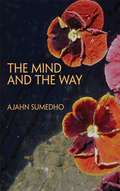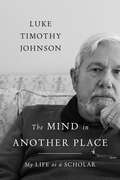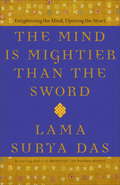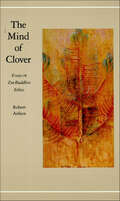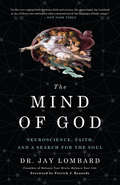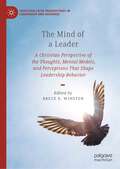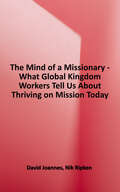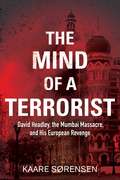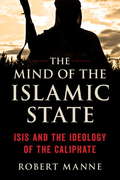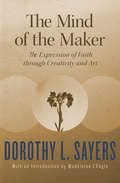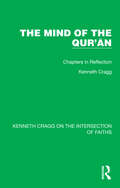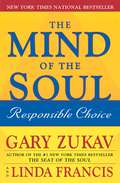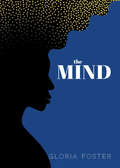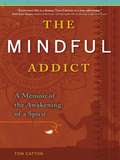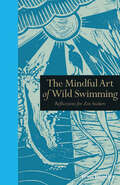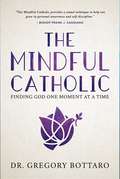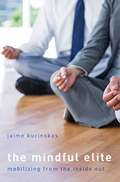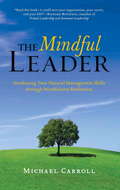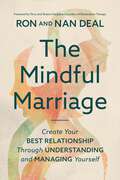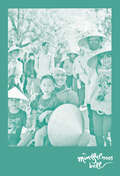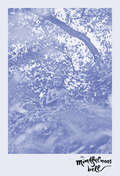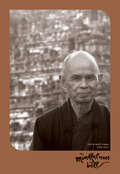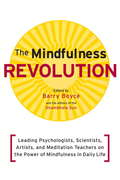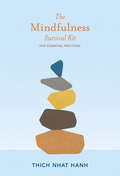- Table View
- List View
The Mind and the Way
by Ajahn Sumedho Venerable Balangoda AnandamaitreyaWhat would life be like if each one of us chose compassion over anger, loving-kindness over hatred, awareness over ignorance? The Mind and the Way demonstrates a radically simple approach to life, one in which we are able to awaken to our true loving nature and delight in the mystery and wonder of the world. With warmth and a wonderful sense of humor, Ajahn Sumedho draws on the experiences of ordinary life to convey Buddhist insights that for 2,500 years have continued to remain vital and pertinent to our lives.
The Mind in Another Place: My Life as a Scholar
by Luke Timothy JohnsonA witness to the peculiar way of being that is the scholar&’s Luke Timothy Johnson is one of the best-known and most influential New Testament scholars of recent decades. In this memoir, he draws on his rich experience to invite readers into the scholar&’s life—its aims, commitments, and habits. In addition to sharing his own story, from childhood to retirement, Johnson reflects on the nature of scholarship more generally, showing how this vocation has changed over the past half-century and where it might be going in the future. He is as candid and unsparing about negative trends in academia as he is hopeful about the possibilities of steadfast, disciplined scholarship. In two closing chapters, he discusses the essential intellectual and moral virtues of scholarly excellence, including curiosity, imagination, courage, discipline, persistence, detachment, and contentment. Johnson&’s robust defense of the scholarly life—portrayed throughout this book as a generative process of discovery and disclosure—will inspire both new and seasoned scholars, as well as anyone who reads and values good scholarship. But The Mind in Another Place ultimately resonates beyond the walls of the academy and speaks to matters more universally human: the love of knowledge and the lifelong pursuit of truth.
The Mind is Mightier than the Sword: Enlightening the Mind, Opening the Heart
by Lama Surya DasFrom bestselling author and beloved teacher Lama Surya Das comes a thorough, engaging, and user-friendly guide to the teachings of Buddhism. Lama Surya Das is one of the most well-regarded Buddhist teachers and scholars in America today. His books have sold hundreds of thousands of copies and his seminars and retreats are continually in demand. In part, it is his straightforward, accessible, and humorous approach that audiences react so strongly to–and inThe Mind Is Mightier Than the Sword,Surya brings that unique approach to a comprehensive guide to the most essential Buddhist teachings. For beginners and experienced practitioners alike, Lama Surya Das outlines his Six Building Blocks of Spiritual Practice and offers insight and advice not only on how to find and develop a spiritual center, but how to integrate it into your daily life. From daily meditation and yoga to creative work, journaling, volunteering in your community, and finding teachers in unexpected places, Buddhist practice can and should be part of everything you do. The Mind Is Mightier Than the Swordis a practical guide to using the teachings of Buddhism to live a happier, healthier, more enlightened life.
The Mind of Clover: Essays in Zen Buddhist Ethics
by Robert AitkenIn Taking the Path of Zen, Robert Aitken provided a concise guide to zazen (Zen meditation) and other aspects of the practice of Zen. In The Mind of Clover he addresses the world beyond the zazen cushions, illuminating issues of appropriate personal and social action through an exploration of the philosophical complexities of Zen ethics. Aitken's approach is clear and sure as he shows how our minds can be as nurturing as clover, which enriches the soil and benefits the environment as it grows. The opening chapters discuss the Ten Grave Precepts of Zen, which, Aitken points out, are "not commandments etched in stone but expressions of inspiration written in something more fluid than water." Aitken approaches these precepts, the core of Zen ethics, from several perspectives, offering many layers of interpretation. Like ripples in a pond, the circles of his interpretation increasingly widen, and he expands his focus to confront corporate theft and oppression, the role of women in Zen and society, abortion, nuclear war, pollution of the environment, and other concerns.The Mind of Clover champions the cause of personal responsibility in modern society, encouraging nonviolent activism based on clear convictions. It is a guide that engages, that invites us to realize our own potential for confident and responsible action.
The Mind of God: Neuroscience, Faith, and a Search for the Soul
by Patrick J. Kennedy Jay LombardFor fans of Deepak Chopra, Rudy Tanzi, and Andrew Newberg. A renowned behavioral neurologist provides insights to some of the most curious spiritual questions we all face. Is there a God?It’s a question billions of people have asked since the dawn of time. You would think by now we’d have a satisfactory, universal answer. No such luck…Or maybe we do and we just need to look in the right place. For Dr. Jay Lombard that place is the brain, and more importantly the mind, that center of awareness and consciousness that creates reality.In The Mind of God, Dr. Lombard employs case studies from his own behavioral neurology practice to explore the spiritual conundrums that we all ask ourselves: What is the nature of God? Does my life have purpose? What's the meaning of our existence? Are we free? What happens to us when we die?For Lombard, these metaphysical questions are a jumping-off point for exploring the brain in search of the seat of the soul. It is neuroscience, the author contends, and how we and our brains interpret what’s going on around us that can lead us to a deeper and more fulfilling faith. Mixing his personal experiences in the medical field (including compelling cases such as the male patient who really thought he was pregnant and a woman who literally scared herself to death) along with his own visionary insight into spiritual experience, Lombard has much to tell us about the nature and power of belief—and what we can do to focus our beliefs in a positive direction. If you want to find more meaning in your life or are searching for a deeper understanding of why we believe what we believe, then this book can lead to an exciting transformation in the way you see and understand the world around you. With cutting-edge research and provocative case studies, renowned behavioral neurologist provides insights to some of the most curious spiritual questions of mortality.
The Mind of St. Paul
by William BarclayFrom the Preface: These chapters originally appeared as a series of weekly articles in the pages of The British Weekly. ... To the original series I have added two chapters, one on Sin and the other on the Church in the thinking of Paul. These chapters do not in any way claim to be an exhaustive and complete Theology of Paul. I have simply gone direct to the Pauline letters to find out what Paul said and thought on certain great subjects. Their aim will be fulfilled, if they send people back to the reading of Paul's letters themselves. This is a well-documented presentation of Paul's ideas. It is easy to read and quite interesting.
The Mind of a Leader: A Christian Perspective of the Thoughts, Mental Models, and Perceptions That Shape Leadership Behavior (Christian Faith Perspectives in Leadership and Business)
by Bruce E. WinstonThis edited collection examines the mind of leaders throughout the Bible to understand how thoughts and behaviors can support or sabotage leadership efforts. It is divided into three parts: the first part addresses thinking, influence, and communicating through the theoretical lenses of humility, metacognition, and personal well-being. Part Two addresses managing, motivating, and change through the theoretical lenses of leader-follower relationships and Lewin’s change model. Finally, Part Three addresses ethics, service, and character through the theoretical lenses of participative leadership, inclusivity, resilience, and mentoring. Each chapter uses a biblical example to demonstrate the role of the mind in the effectiveness of different leaders. This volume will serve as a valuable resource to researchers interested in leadership studies, particularly those examining the biblical perspective.
The Mind of a Missionary: What Global Kingdom Workers Tell Us About Thriving on Mission Today
by David JoannesGod's got a mission. But in a self-absorbed, humanistic, and hurried culture, learning to find your groove in His master plan is anything but easy. Fear not: Top-selling author and career missionary David Joannes is here to help you discover your God-given destiny. The Mind of a Missionary gives you a shot of Jesus’ missional ethos, helping you overcome challenging obstacles, dare the impossible to advance God’s kingdom and maximize your role in the Great Commission. Twelve missionary guides (and dozens more modern-day global Kingdom workers) show you how to grow a missionary mindset and leave a Gospel mark on the world.
The Mind of a Terrorist: David Headley, the Mumbai Massacre, and His European Revenge
by Kaare SørensenWith the Pacing of a Thriller, a Veteran Journalist’s Account of the Terrorist behind the Mumbai Attacks and a Planned Attack in EuropeDavid Headley, the American-Pakistani also known as Daood Gilani, lived a double life. One day he would stroll through Central Park in his tailored Armani suit as a true New Yorker, and the next he would browse in the bazaar in Lahore wearing traditional Pakistani clothes. One day he would drink champagne at the most extravagant clubs; on another he would prostrate himself in prayer in remote Pakistan and pledge fidelity to Allah.Born in 1960, the son of an American mother and Pakistani father, with one blue eye and one brown, Headley grew up between East and West. He was attracted to both worlds, even working as an informant for the US government, until one day he found he had to choose between the place of his birth and a radical form of Islam preaching global jihad. This is the disturbing story of the mastermind behind the 2008 attacks in Mumbai that killed 166 people-who two months later flew to Copenhagen to plan another act of terror with the help of al-Qaeda sleeper cells in Europe.Veteran journalist Kaare Sørensen has reconstructed his movements and planning in a tense feat of reportage. His account, based on extensive reporting, eyewitness interviews, and documentation including wiretaps, court transcripts, and emails by Headley accessed from a chat room cache of nine thousand messages, offers unprecedented insight into the mind of the terrorist. The author has provided updates and a new preface for the English-language edition.
The Mind of the Islamic State: ISIS and the Ideology of the Caliphate
by Robert ManneIn the ongoing conflict with ISIS, military observers and regional experts have noted that it is just as important to understand its motivating ideology as to win battles on the ground. This book traces the evolution of this ideology from its origins in the prison writings of the revolutionary jihadist Sayyid Qutb, through the thinking of Osama bin Laden and Ayman al-Zawahiri, who planned the 9/11 terrorist attack, to today's incendiary screeds that motivate terrorism via the Internet. Chief among these recent texts are two documents that provide the foundation for ISIS terrorism. One is called The Management of Savagery, essentially a handbook for creating mayhem through acts of violence. The other is the online magazine of horror called Dabiq, which combines theological justifications with ultraviolent means, apocalyptic dreams, and genocidal ambitions. Professor Manne provides close, original, and lucid readings of these important documents. He introduces readers to a strange, cruel, but internally coherent and consistent political ideology, which has now entered the minds of very large numbers of radicalized Muslims in the Middle East, North Africa, and the West. However disturbing and unsettling, this book is essential reading for anyone concerned about terrorist violence.
The Mind of the Maker: The Expression of Faith through Creativity and Art (Library Of Anglican Spirituality Ser.)
by Dorothy L. SayersAn investigation into the nature of God and creativity from the author of the Lord Peter Wimsey Mysteries, with an introduction by Madeleine L&’Engle. From the first pages of Genesis, it is clear that God and man share one vital trait: the ability to create great works out of nothing. More than any other group, artists feel impelled to create, and this urge brings them closer to God. By contemplating the creative drive of humanity, we can better understand the works of God, and by reading deeply into the tenets of Christianity, we can better understand the creative spirit of man. Dorothy L. Sayers explores the concept of the Holy Trinity within the context of invention: the creative idea, the creative energy, and the creative power. In this searching, wide-ranging treatise, one of the greatest minds of the twentieth century shows us what it means to be an artist—and what it takes to make humankind.
The Mind of the Qur’ān: Chapters in Reflection (Kenneth Cragg on the Intersection of Faiths #1)
by Kenneth CraggOriginally published in 1973, this volume consists of a sequence of essays in religious thinking, responsive to the impact of Quranic style and emphasis. It traces the implications of the Qur’ān in the related fields of man and history, evil and forgiveness, unity and worship, wonder and the hallowing of the world. It does so with a critical eye for the classical commentators, three of whom are translated here in their exegesis of three important Surahs. The underlying emphasis of this book is inter-religious converse and responsibility in the contemporary world.
The Mind of the Soul: Responsible Choice
by Gary Zukav Linda Francis"This book can dramatically change your life by showing you how to take responsibility for the choices you make and break free from the illusion that you are a victim of your circumstances." So begins one of the most significant works you will ever encounter. People make hundreds of choices every day -- both large and small -- yet most individuals feel they have little control over their own lives. Now Gary Zukav, author of the monumental bestseller The Seat of the Soul, joins his spiritual partner, Linda Francis, in a revolutionary look at the power of choice and how to use it wisely. They explain how changing our decision-making can help us avoid self-defeating patterns of thought and action -- and help us take control of our lives by creating authentic, positive power. The Mind of the Soul describes how each moment in life is a moment of decision: wheth- er to persist in the old, limited patterns of life or to choose instead to experiment with the unbounded, liberating potential ahead of us. Using the same pragmatic terms that made The Heart of the Soul so meaningful, Zukav and Francis allow readers to develop, step by step, the ability to break free of unconscious choices that hold them back and limit their fulfillment in life. Whether your choices are large ones -- concerning work, marriage, parenting, or divorce -- or smaller day-to-day choices, such as shouting or showing annoyance when you are angry, they carry consequences for which you must assume responsibility. You will discover that in any situation one choice among the many that present themselves to you is the optimal choice -- to create harmony, cooperation, sharing, or reverence for Life. When you make this choice, you gain the freedom to experiment with your life, see what does or does not work for you, learn to change yourself instead of blaming others, open your heart, and develop authentic power. The Mind of the Soul is a book to be used, not merely read. It is packed with specific, practical exercises, diagrams, and meaningful illustrations that make you a participant in the process of responsible choice. To accompany this book, the authors have created a special Self-Empowerment Journal with additional material to help you focus your thoughts and emotions as you read and to invite you to record your insights after each exercise. The discoveries you make in both the book and the Journal will become a permanent part of your life long after you have turned the last page.
The Mind: A novel
by Gloria FosterThe brightest victories often hide in the darkest places. For investment banker, Sheila, her daily struggle lies in resisting the influence of her auditory hallucinations, even while they keep her from what she wants most—a relationship with the strong, kind friend from work, Jonathan. The voices that haunt Sheila keep her from the life she dreams of: a life of success, of friendship, of deep and lasting love. To overcome her condition, Sheila must trace the root of her illness—a secret embedded in a childhood she cannot remember. Will her faith and love be strong enough to last the journey?
The Mindful Addict
by Tom CattonThe enlightening and worldly journeys of a once hopeless addict whose life was profoundly changed after a chance meeting with a nomadic spiritual healer.
The Mindful Art of Wild Swimming: Reflections for Zen Seekers (Mindfulness Ser.)
by Tessa Wardley“Turn your outdoor bathing into an enriching meditation with this exploration into the emotional benefits of swimming in nature.” —Health & FitnessThe Mindful Art of Wild Swimming explores how swimming in rivers, lakes, and seas is the very epitome of conscious living. Zen-seeker Tessa Wardley reconnects the physical and spiritual cycles of life to the changing seasons and flow of wild waters worldwide and leads the reader on to a mindful journey through the natural world. Combining expert insight and personal anecdote, she shares with sparkling clarity why our relationship with open water is so fundamental to pure wellbeing, and reveals how wild swimming can be the ultimate Zen meditation.“Tessa Wardley is a keen and knowledgeable guide” —Times Literary Supplement
The Mindful Catholic: Finding God One Moment At A Time
by Greg Bottaro2018 Catholic Writer's Guild Award Winner! Whether we are carrying out routine life behaviors, trying to pray, or conversing with others, the way our minds work significantly impacts how well we function. But many times we may feel like our mind has a mind of its own. -- You fall into bed exhausted at the end of the day, craving a good night's sleep, only to have your mind race in a million directions. -- Prayer is an exercise in futility, full of distractions and wandering thoughts. -- In the midst of a conversation, you suddenly realize you haven't heard a word the other person has said. -- You arrive at a destination with no recollection of how you got there. These all-too-common occurrences are examples of of how our minds can seem to be completely out of our control. We end up merely going through the motions day after day, feeling anxious and preoccupied. But it doesn't have to be that way. Dr. Greg Bottaro explains how mindfulness can help us become aware of the present moment and accept it. Catholic mindfulness is a way to practically trust God more in our lives. Instead of separating faith from day-to-day life, mindfulness helps bridge the gap so we can feel the sense of safety and peace God intends us to have. Following the simple exercises in this book, you'll discover how mindfulness can help you be more present to everything in your life from a trip to the grocery store or relaxing with friends to listening more attentively to a homily or meditating on the mysteries of the Rosary.
The Mindful Elite: Mobilizing from the Inside Out
by Jaime KucinskasMindful meditation is now embraced in virtually all corners of society today, from K-12 schools to Fortune 100 companies, and its virtues extolled by national and international media almost daily. It is thought to benefit our health and overall well-being, to counter stress, to help children pay attention, and to foster creativity, productivity and emotional intelligence. Yet in the 1960s and 1970s meditation was viewed as a marginal, counter-cultural practice, or a religious ritual for Asian immigrants. How did mindfulness become mainstream? <p><p> In The Mindful Elite, Jaime Kucinskas reveals who is behind the mindfulness movement, and the engine they built to propel mindfulness into public consciousness. Drawing on over a hundred first-hand accounts with top scientists, religious leaders, educators, business people and investors, Kucinskas shows how this highly accomplished, affluent group in America transformed meditation into an appealing set of contemplative practices. Rather than relying on confrontation and protest to make their mark and improve society, the contemplatives sought a cultural revolution by building elite networks and advocating the benefits of meditation across professions. Yet, spreading the Dharma far and wide came with unintended consequences and this idealistic myopia came to reinforce some of the problems it originally aspired to solve. <p><p> A critical look at this Buddhist-inspired movement, The Mindful Elite explores how elite movements can spread and draws larger lessons for other social, cultural, and religious movements across institutions and organizations.
The Mindful Leader: Awakening Your Natural Management Skills Through Mindfulness Meditation
by Michael CarrollA new generation of business leaders is turning to mindfulness as a cutting-edge leadership tool. Scientific research suggests that the practice of mindfulness (a technique for learning to live in the present moment) can help individuals to gain clarity, reduce stress, optimize performance, and develop a greater sense of well-being.In The Mindful Leader, Michael Carroll explains what mindfulness is and how to develop it in the hectic and often stressful environment of the twenty-first century workplace. He focuses on ten key principles of mindfulness and how they apply to leading groups and organizations. Along the way, Carroll addresses a range of topics, including how to:heal the "toxic workplace," where anxiety and stress impede performancecultivate courage and confidence in the face of workplace difficultiespursue organizational goals without neglecting what's happening here and nowlead with wisdom and gentleness, not just with ambition and powerstart a personal meditation practice to develop your innate leadership talentsFull of engaging stories and practical exercises, The Mindful Leader will help leaders in any field to discover their innate intelligence, bravery, and joy on the job.
The Mindful Marriage: Create Your Best Relationship Through Understanding and Managing Yourself
by Terry Hargrave Ron L Deal Nan Deal Sharon HargraveBacked by neuroscience and biblical principles, this book delivers a trauma-informed therapeutic model for healthy couples who want a stronger connection and offers deep transformation for couples in troubled relationships so they can stop painful patterns.When Ron and Nan Deal suffered the devastating loss of their child, their marriage was nearly shattered by their destructive cycles. At wits' end, they sought the help of pioneering therapists Dr. Terry Hargrave and Sharon Hargrave, LMFT, whose transformational Restoration Therapy has helped millions through the practice of emotional mindfulness. Now, the Deals and Hargraves introduce readers to this proven method that challenges popular beliefs about how relationships work. They show readers how to better understand themselves in times of emotional distress, so that they can self-regulate. Christian readers will especially appreciate the balance of scientifically proven methods along with Scripturally sound teaching, resulting in more loving, faithful marital relationships.
The Mindfulness Bell 91: A journal of the art of mindful living in the Plum Village tradition of Thich Nhat Hanh
by Mindfulness Bell, TheThis issue focuses on the path of practice with Buddhist psychology and neuroscience for individual and collective health. In "Rebuilding Health," Thích Nhất Hạnh teaches us to stop running and find healing.Dharma teacher Jo-ann Rosen and the EMBRACE Sangha offer insights on seeing the practice through a neuroscientific and trauma-sensitive lens."Neuroscience Infused Body-scan," a Dharma talk by Brother Pháp Linh.Practitioners share about healing trauma and mindfulness in public health research.Sharings from Happy Farm, Wake Up, Wake Up Schools, the Earth Holder Community, and the Thích Nhất Hạnh Foundation.
The Mindfulness Bell: A journal of the art of mindful living in the Plum Village tradition of Thich Nhat Hanh
by Mindfulness Bell, TheA journal of the art of mindful living in the Plum Village tradition of Thich Nhat Hanh - Issue 90This issue features teachings from Thich Nhat Hanh, Dr Larry Ward, and Sister Boi Nghiem:Thich Nhat Hanh on the intimate connection between suffering and happinessDr Larry Ward on caring for our traumatic experiencesBrother Peace on losing both his parents to depression and suicideDharma teacher Valerie Brown on inspiring hope in a world in needSister Bội Nghiêm on understanding relationships and suffering in the LGBTQIA+ communityUpdates from ARISE Sangha, the Earth Holder Community, Happy Farm, Wake Up International, Wake Up Schools, and the Thich Nhat Hanh Foundation.Practitioners share about spirituality and racial equity, being on the front lines of climate action, practicing online, and much more
The Mindfulness Bell: A journal of the art of mindful living in the Plum Village tradition of Thich Nhat Hanh
by The Mindfulness BellA journal of the art of mindful living in the Plum Village tradition of Thich Nhat Hanh.The Mindfulness Bell would like to honor Thầy&’s transformation by offering this curated collection of highlights from the week of memorial ceremonies; teachings from Thích Nhất Hạnh on death, impermanence, and interbeing; and reflections and recollections of Thầy from elder monastics, lay Dharma teachers, and friends.Whats inside?-Letter from the Editor By Brother Phap Luu-What Can I Say About My Beloved Teacher? By Dr. Larry Ward-Discourse on Taking Refuge in the Island of Oneself
The Mindfulness Revolution: Leading Psychologists, Scientists, Artists, and Meditatiion Teachers on the Powe r of Mindfulness in Daily Life
by Thich Nhat Hanh Jon Kabat-Zinn Jack Kornfield Daniel Siegel Barry BoyceA growing body of scientific research indicates that mindfulness can reduce stress and improve mental and physical health. Countless people who have tried it say it's improved their quality of life. Simply put, mindfulness is the practice of paying steady and full attention, without judgment or criticism, to our moment-to-moment experience. Here is a collection of the best writing on what mindfulness is, why we should practice it, and how to apply it in daily life, from leading figures in the field.Selections include:Leading thinking Jon Kabat-Zinn on the essence of mindfulness, stress reduction, and positive changeZen teacher Thich Nhat Hanh on the transformative power of mindful breathingProfessor of psychiatry Daniel Siegel, MD, on how mindfulness benefits the brainPhysician and meditation teacher Jan Chozen Bays, MD, on how and why to practice mindful eatingPioneering psychologist Ellen Langer on how mindfulness can change the understanding and treatment of diseaseLeadership coach Michael Carroll on practicing mindfulness at workPsychologist Daniel Goleman on a mindful approach to shopping and consumingPianist Madeline Bruser on how mindfulness can help us overcome performance anxietyand much moreThe Mindfulness Revolution also includes an in-depth discussion by writer-editor Barry Boyce about how mindfulness is being applied in a variety of professional fields--from health care to education, from performing arts to business--to improve effectiveness and enhance well-being.Learn more at www.mindful.org.
The Mindfulness Survival Kit
by Thich Nhat HanhThe Five Mindfulness Trainings (also referred to as "Precepts")—not to kill, steal, commit adultery, lie, or take intoxicants—are the basic statement of ethics and morality in Buddhism. Zen Master and peace activist Thich Nhat Hanh argues eloquently for their applicability in our daily lives and on a global scale. Nhat Hanh discusses the value and meaning of each precept, offering insights into the role that it could play in our changing society.Thich Nhat Hanh calls the trainings a "diet for a mindful society." With this book he offers a Buddhist contribution to the current thinking on how we can come together to define secular, moral guidelines that will allow us to explore and sustain a sane, compassionate, and healthy way of living. The Five Mindfulness Trainings offer a path to restoring meaning and value in our world, whether called virtues, ethics, moral conduct, or precepts they are guidelines for living without bringing harm to others.
